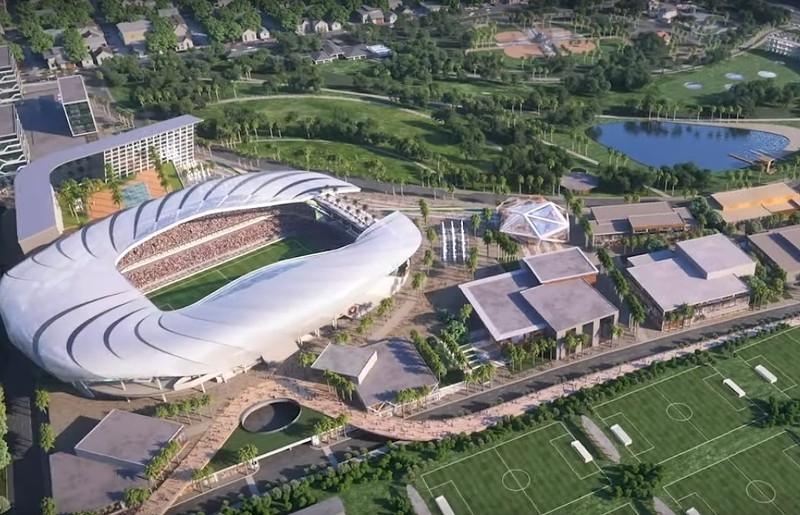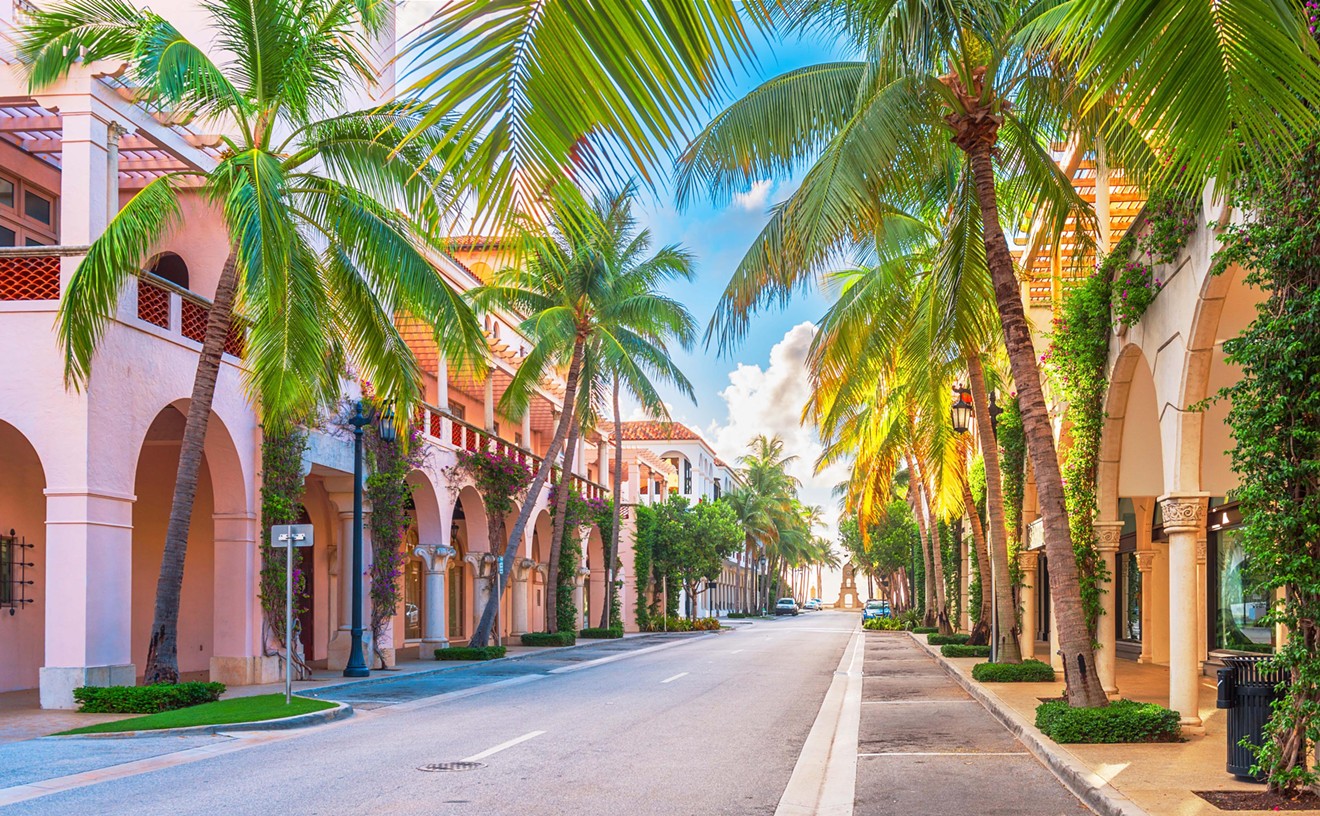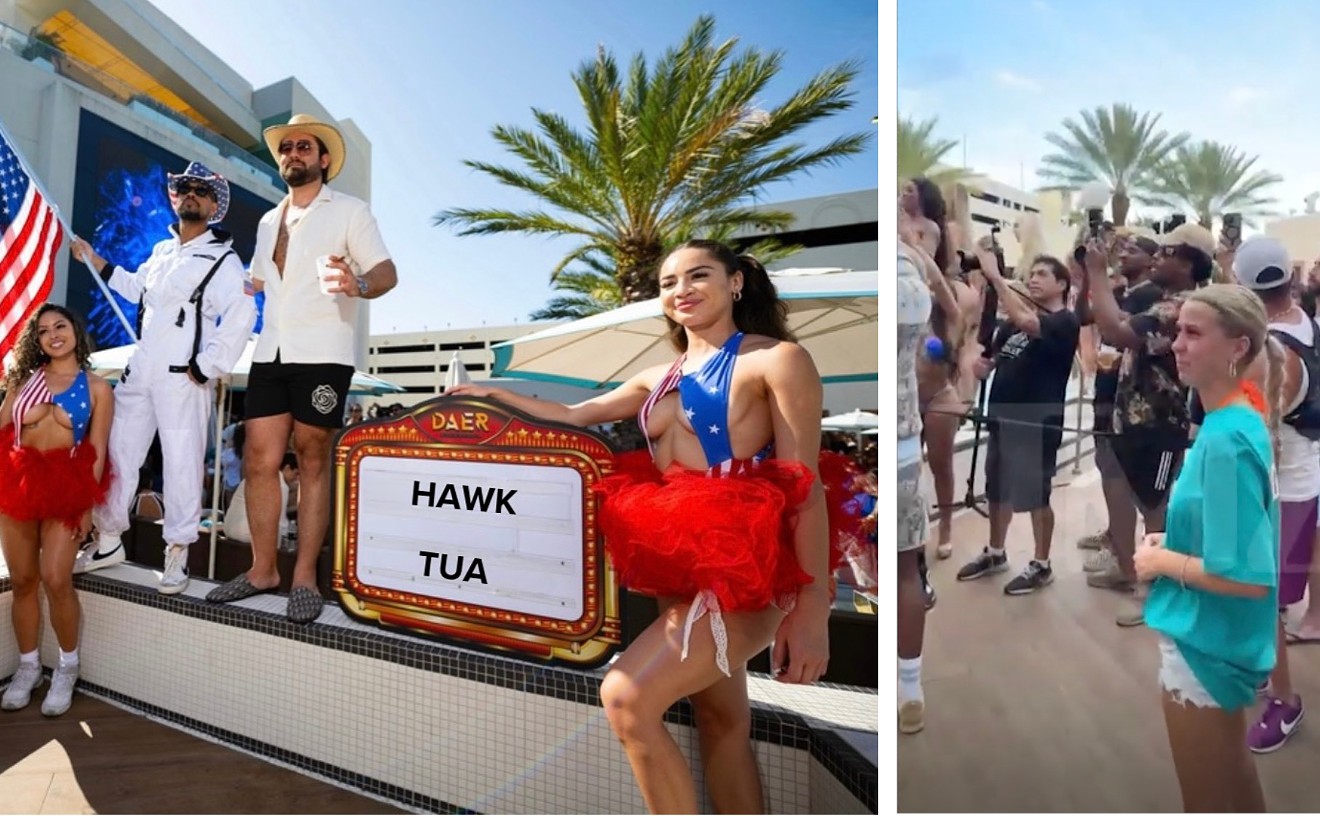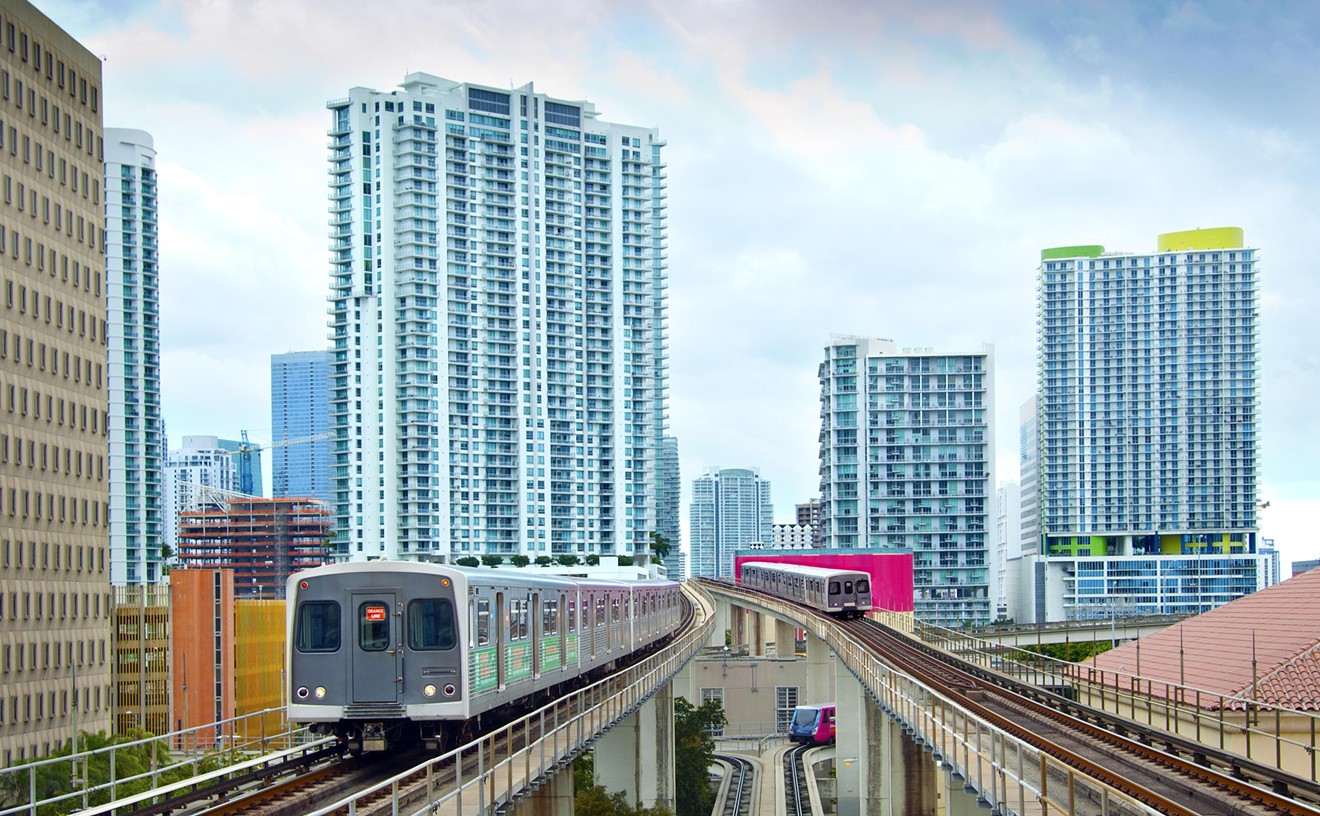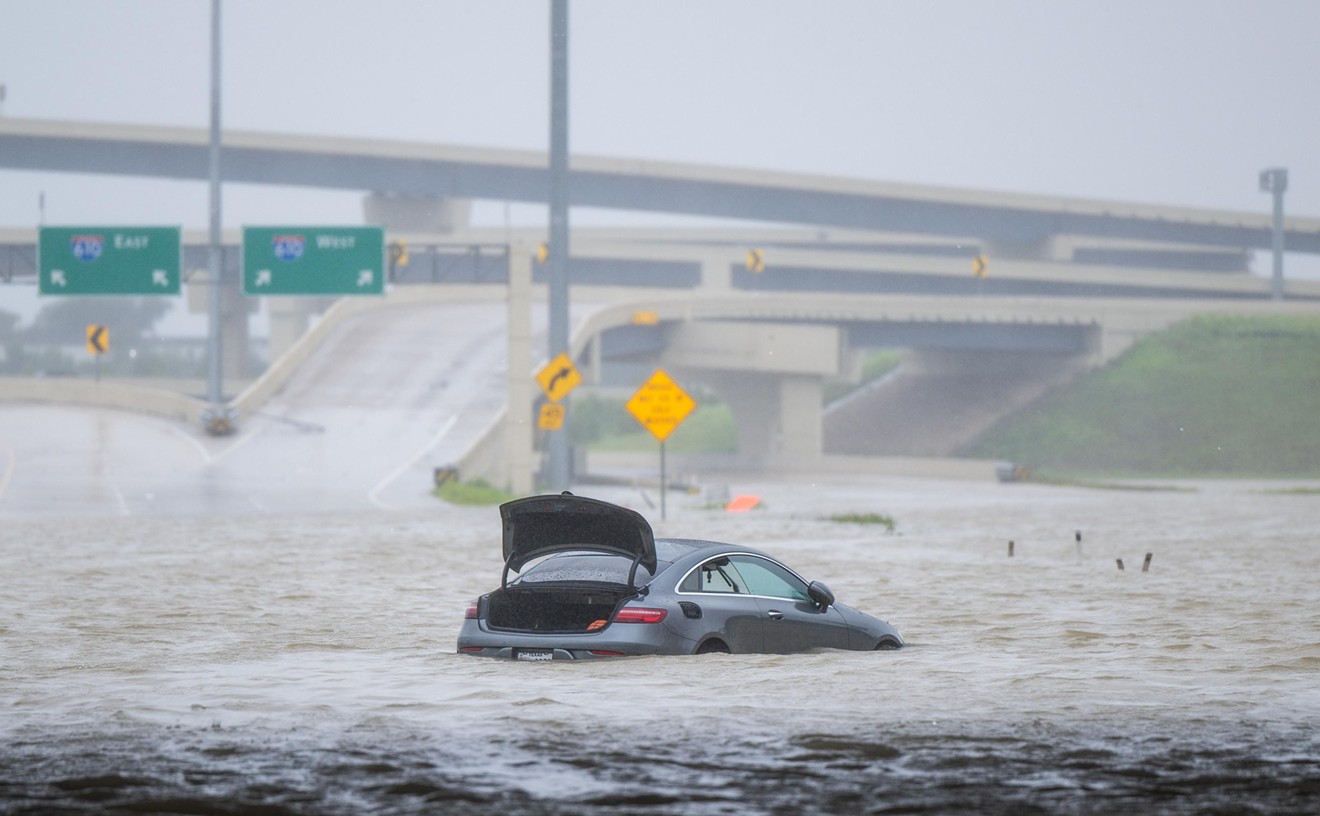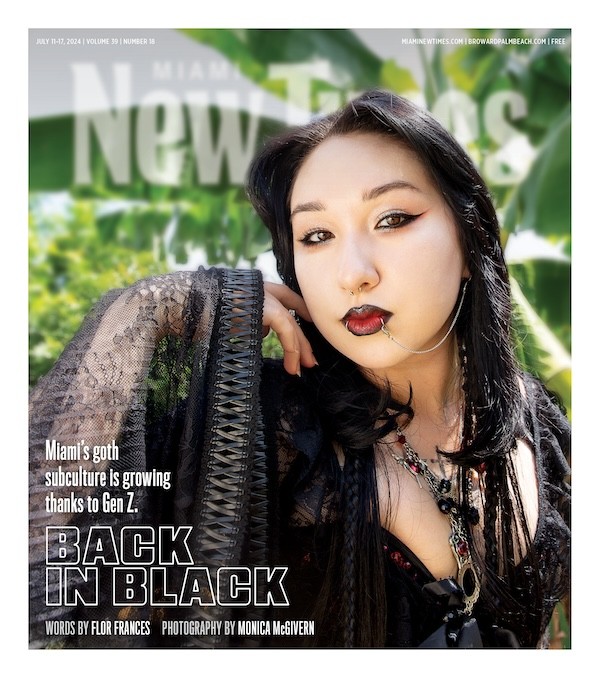The Miami-Dade County Commission is urging state lawmakers to approve $5 million of taxpayer funding for a project to clean up arsenic-contaminated soil and improve drainage at the former Melreese Country Club, the site where Inter Miami CF's 25,000-seat soccer stadium is set to be built.
The commission passed a resolution at its December 12 meeting asking the state to approve the funding and directing the county's lobbyists to begin advocating for the money to be used for Phase I infrastructure improvements at the site. A late addition to the agenda, sponsored by District 6 Commissioner Kevin Cabrera, the resolution passed 11-0, a commission spokesperson tells New Times.
Though Inter Miami has maintained that the project "is 100 percent privately funded by club ownership," it appears that public funds for the project are now being requested.
In a 2018 referendum, Miami voters authorized city officials to negotiate and approve a plan to lease the 131-acre, city-owned property to develop it into Miami Freedom Park, which will include Inter Miami's Major League Soccer stadium. Then, in 2022, Inter Miami owners David Beckham and local businessmen Jorge and Jose Mas secured approval from the Miami City Commission for a zoning plan to allow construction.
"Phase I is central to a wider environmental remediation and conversion of the former golf course with contaminated soil into a community asset, fostering recreation alongside a separately funded economic development and global innovation initiative," Cabrera's resolution states.
Jorge Mas had made assurances in July 2018 that the project would be funded privately and that the stadium would require "no public dollars."
"New Miami park/soccer village/tech hub will be privately funded with NO public dollars for stadium. Will be unique paying fair market value for land and property taxes," Mas wrote on the platform then known as Twitter.
Cabrera's resolution is tied to a budget appropriations item from Florida Sen. Bryan Avila (R-Hialeah Gardens) and Florida House Rep. Lawrence McClure (R-Plant City), who requested that state lawmakers set aside the funds for the stadium when they vote on Florida's 2024-25 budget in next year's legislative session, which begins on January 9.
The Florida budget proposed by Gov. Ron DeSantis earlier this month totals $114.4 billion, $4.6 billion less than the current budget.
After Miamians voted in the stadium referendum, an environmental report released in 2019 showed the soil was contaminated with arsenic and lead. The report, authored by EE&G Environmental Services LLC, stated that the site – located at 1802 NW 37th Ave., just east of the Miami International Airport – was used as a dumping ground for incineration ash before it was developed into a golf course in the 1960s.
The arsenic was also partially attributed to "golf course application of agrochemicals," according to the report. Arsenic was widely applied on golf courses as an herbicide, in forms such as monosodium methyl arsenate, before its use was prohibited in 2013.
County officials submitted their funding request in November, showing that the project is expected to cost about $11.4 million, of which $5 million would be provided via the state appropriation. In addition to the stadium, the project plans include restaurants, shops, a hotel, recreation space, and public soccer fields.
"The funding for crucial enhancements to Miami Freedom Park, a City of Miami-owned property, will drive substantial
local economic growth, including a catalyst global-innovation hub and world-class soccer facility," Avila's report states.
McClure's submission says that the project will increase tourism and create jobs.
"The full realization of Miami Freedom Park will generate over 15,000 new jobs in various sectors like entertainment, retail, construction, corporate headquarters, and hospitality, contributing to economic growth in the state of Florida," the request states. "The commercial campus is set to draw both established and emerging companies to Miami, enhancing the city's innovative landscape."
The request notes that the $5 million would pay for essential infrastructure, including "solid pipe drainage, ex-filtration, trench drainage, catch basins, water and sewer systems, bike paths, a wellness loop, electrical installations, benches, landscaping, and diverse amenities."
Construction began on the project in August, with heavy equipment and building crews moving in to perform earthwork and site preparation.
Update 3/18/2024: Florida Sen. Bryan Avila withdrew his support for the funding request after the publication of this article. The senator declined to sponsor the appropriation "because it is not philosophically in line with the senator’s platform," his office said in a statement.
[
{
"name": "Air - MediumRectangle - Inline Content - Mobile Display Size",
"component": "19274298",
"insertPoint": "2",
"requiredCountToDisplay": "2",
"watchElement": ".fdn-content-body",
"astAdList": [
{
"adType": "rectangle",
"displayTargets": "mobile"
}
]
},{
"name": "Editor Picks",
"component": "17482312",
"insertPoint": "4",
"requiredCountToDisplay": "1",
"watchElement": ".fdn-content-body",
"astAdList": [
{
"adType": "rectangle",
"displayTargets": "desktop|tablet"
},{
"adType": "rectangle",
"displayTargets": "desktop|tablet|mobile"
}
]
},{
"name": "Inline Links",
"component": "18711090",
"insertPoint": "8th",
"startingPoint": 8,
"requiredCountToDisplay": "7",
"maxInsertions": 25
},{
"name": "Air - MediumRectangle - Combo - Inline Content",
"component": "17482310",
"insertPoint": "8th",
"startingPoint": 8,
"requiredCountToDisplay": "7",
"maxInsertions": 25,
"watchElement": ".fdn-content-body",
"astAdList": [
{
"adType": "rectangle",
"displayTargets": "desktop|tablet"
},{
"adType": "rectangle",
"displayTargets": "desktop|tablet|mobile"
}
]
},{
"name": "Inline Links",
"component": "18711090",
"insertPoint": "8th",
"startingPoint": 12,
"requiredCountToDisplay": "11",
"maxInsertions": 25
},{
"name": "Air - Leaderboard Tower - Combo - Inline Content",
"component": "17482313",
"insertPoint": "8th",
"startingPoint": 12,
"requiredCountToDisplay": "12",
"maxInsertions": 25,
"watchElement": ".fdn-content-body",
"astAdList": [
{
"adType": "leaderboardInlineContent",
"displayTargets": "desktop|tablet"
},{
"adType": "tower",
"displayTargets": "mobile"
}
]
}
]

